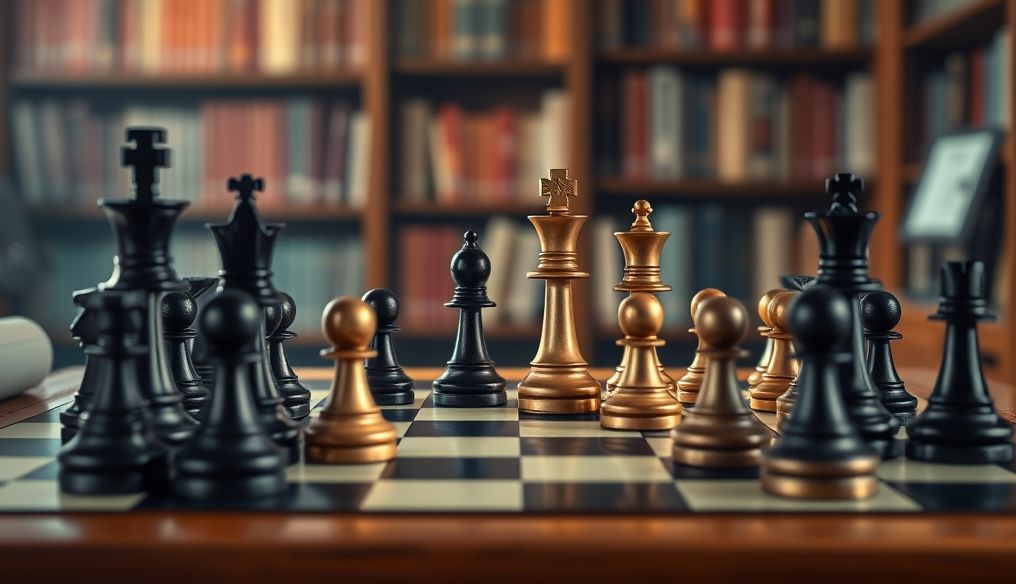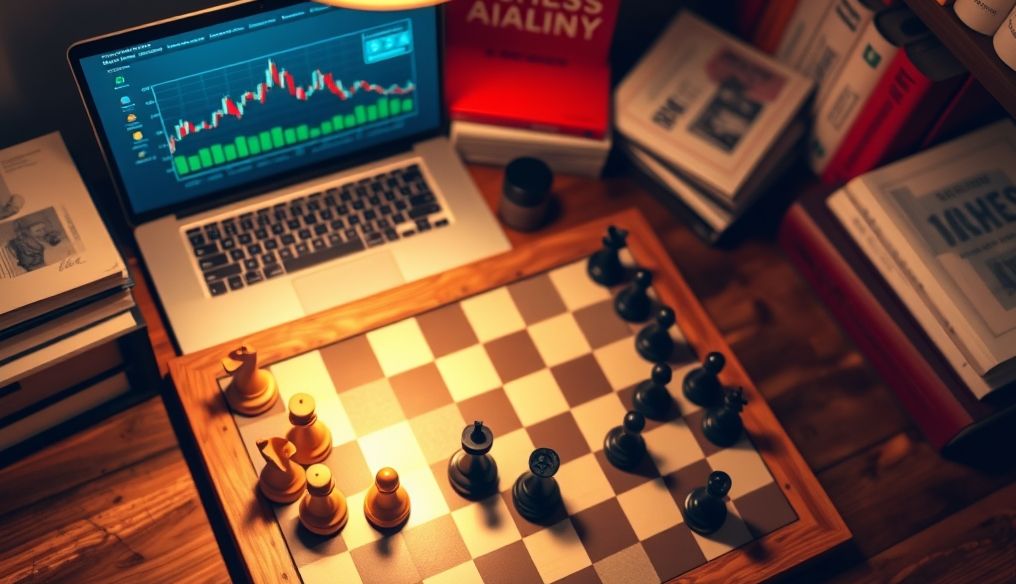How Does Chess Benefit Strategic Thinking and Improve Your Life?
Chess, an ancient game with roots stretching back centuries, is not merely a pastime or a form of entertainment. It's a powerful tool for developing mental abilities, most notably strategic thinking. Chess serves as a training ground for the mind, where players face constant challenges that require them to plan ahead, analyze situations, assess risks, and make sound decisions under pressure. In this article, we will delve into how chess can enhance strategic thinking and how these acquired skills can positively impact various aspects of our lives.
1. Enhancing the Ability to Plan Ahead
Planning is at the heart of chess. Every move should be part of a larger plan, considering the potential consequences in both the short and long term. This continuous training enhances the ability to plan in real life, whether in the workplace, project management, or even personal financial planning.
Practical Examples:
- In the Workplace: Chess helps in developing long-term business plans, anticipating potential challenges, and preparing for them in advance.
- In Personal Life: Skills learned from chess can be used in creating financial plans, setting career goals, or even organizing a vacation.
2. Developing Analysis and Evaluation Skills
Chess requires a thorough analysis of the current situation, an evaluation of the strength of the pieces, and the identification of the opponent's weaknesses. These analytical skills are essential for making informed decisions in various aspects of life.
How Does Chess Contribute to Developing These Skills?
- Situation Analysis: Learn how to assess the current situation and identify the key factors influencing it.
- Risk Assessment: Learn how to estimate the potential risks associated with each decision and take steps to minimize them.
- Decision Making: Learn how to make informed decisions based on analysis and evaluation.
3. Improving Focus and Attention Span
Chess requires intense focus and meticulous attention to detail. Any slight distraction can lead to losing the game. This continuous training enhances the ability to focus and pay attention in daily life, helping to improve performance in studies and work.
Studies and Research:
Numerous studies have shown that playing chess regularly can improve focus and attention span in both children and adults. For example, a study published in the "Journal of Educational Psychology" found that children who play chess regularly perform better on focus and attention tests.
4. Enhancing Memory and Quick Thinking
Chess requires remembering past moves, analyzing patterns, and anticipating the opponent's reactions. This continuous training enhances memory and quick thinking, helping to improve performance in tasks that require remembering information and solving problems quickly.
Mental Exercises:
In addition to playing chess, other mental exercises can be practiced to enhance memory and quick thinking, such as solving puzzles, learning a new language, or reading books.
5. Developing Problem-Solving Skills
Chess is a series of problems that must be solved. Each move represents a new challenge, and each game requires finding innovative solutions to overcome the opponent. This continuous training enhances problem-solving skills, helping to deal with various challenges in daily life.
Problem-Solving Strategies:
- Identify the Problem: Clearly identify the problem and understand its various dimensions.
- Analyze the Problem: Break down the problem into smaller parts and identify the root causes.
- Find Solutions: Find a variety of potential solutions to the problem.
- Evaluate Solutions: Evaluate the potential solutions and choose the best one.
- Implement the Solution: Implement the chosen solution and evaluate the results.
6. Learning How to Handle Pressure
Chess can be a stressful game, especially in competitive matches. Learning how to handle pressure and make sound decisions under pressure is a valuable skill that can be applied in various aspects of life, such as work, studies, or even personal relationships.
Techniques for Handling Pressure:
- Deep Breathing: Practice deep breathing to calm the nerves and reduce stress.
- Meditation: Practice meditation to increase self-awareness and reduce anxiety.
- Focus on the Present: Focus on the present moment and avoid thinking about the past or future.
- Positive Thinking: Focus on the positive aspects of the situation and avoid negative thinking.
7. Fostering Creativity and Innovation
Chess is not just a logical game, but also requires creativity and innovation. Winning often requires finding unconventional solutions and thinking outside the box. This continuous training enhances creativity and innovation, helping to find new solutions to various problems.
How Does Chess Contribute to Enhancing Creativity?
- Thinking Outside the Box: Learn how to think in unconventional ways and find innovative solutions.
- Experimentation: Experiment with new strategies and not be afraid of failure.
- Learning from Mistakes: Learn from mistakes and use them to improve future performance.
8. Improving Decision-Making Ability
Chess requires making decisions constantly. Each move represents a decision, and each decision has potential consequences. This continuous training improves the ability to make decisions, helping to make informed decisions in various aspects of life.
Steps for Decision Making:
- Identify the Problem: Identify the problem that requires making a decision.
- Gather Information: Gather information relevant to the problem.
- Analyze Options: Analyze the available options and evaluate the advantages and disadvantages of each option.
- Make a Decision: Choose the best option based on the analysis.
- Implement the Decision: Implement the chosen decision and evaluate the results.
In conclusion, chess is not just a game; it is a powerful tool for developing strategic thinking and improving many other mental skills. Through planning, analysis, focus, problem-solving, and decision-making, chess can help you achieve success in various aspects of your life.




